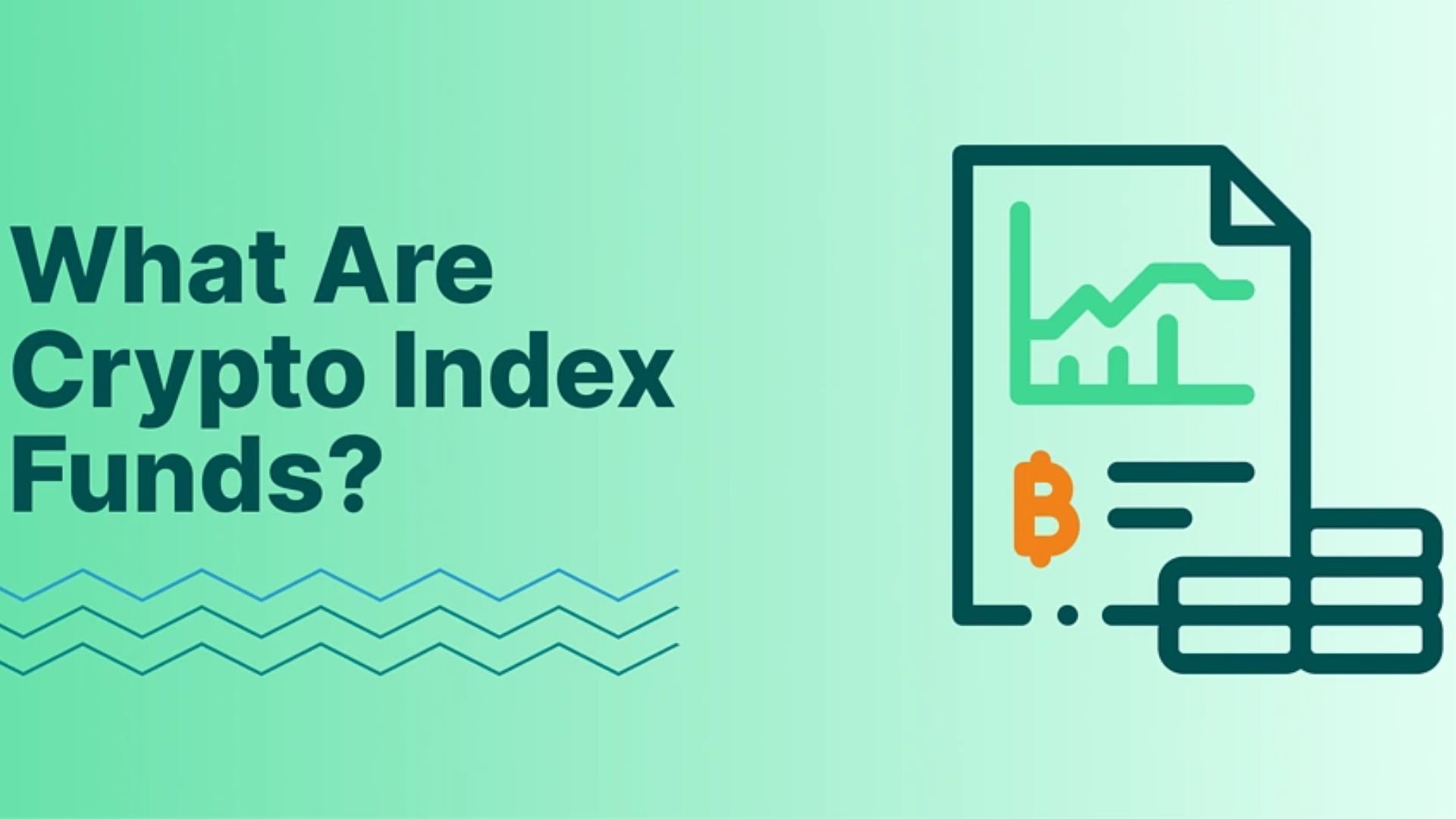Crypto ETFs: A Game-Changer in Investment Landscape By Coinpalais

Crypto ETFs: A Game-Changer in Investment Landscape By Coinpalais. An exchange-traded fund (ETF) that focuses solely on blockchain technology is a blockchain fund. Investing in digital currency futures contracts or digital currency directly allows cryptocurrency exchange-traded funds (ETFs) to follow the price performance of one or more cryptocurrencies. Investors may now profit from fluctuations in cryptocurrency prices without ever having to step foot on a crypto market, all while avoiding the hassle and costs connected with directly owning digital assets.
ETFs debuted in the early 1990s. These products now protect digital assets like Bitcoin, equities, and commodities. As investors’ demands changed, ETFs included gold and silver in their portfolios. The first U.S. Bitcoin ETF gives investors direct access to Bitcoin through traditional finance, a major financial industry development. ETFGI reports 482 listings for 176 crypto ETFs and ETPs worldwide. Global cryptocurrency ETF and ETP assets rose 119.6% to $12.73 billion in the first eleven months of 2023 from $5.79 billion in 2022. November saw $1.31 billion in net inflows. Net inflows for the first half 2023 are $1.60 billion, second only to 2021’s $9.02 billion.
How Crypto ETFs Work?

Coincident with what was said before, a crypto ETF mimics the price fluctuations of digital assets like Bitcoin and Ethereum by tracking their performance. Cryptocurrency exchange-traded funds (ETFs) offer two ways to track the value of a virtual currency, in contrast to the majority of ETFs that hold a basket of underlying assets like indexes. Direct cryptocurrency holdings allow spot ETFs to construct a portfolio roughly tracking the digital assets’ performance. More cryptocurrency exchange-traded funds have invested in futures contracts and agreements to purchase or sell cryptocurrency at a predetermined price and date. Like other derivatives, synthetic cryptocurrency ETFs carry extra risk due to the lack of transparency in their operations. An exchange-traded fund (ETF) can invest in Bitcoin futures or sports.
Spot Bitcoin ETF
The value of a spot Bitcoin exchange-traded fund (ETF) is supported by actual Bitcoins. You can anticipate a general increase in the value of your investment if the value of the digital currency underpinning the ETF grows. If the value of Bitcoin rises, the investment should also rise in value. The most direct approach to investing in Bitcoin without purchasing and holding coins is through a physically backed Bitcoin ETF. The fund owns them in this instance.
Bitcoin Futures ETF
The fundamental assets of a Bitcoin futures ETF are not Bitcoin itself but rather futures contracts over Bitcoin. An agreement establishing a predetermined price and a future date for the delivery of an asset or its cash equivalent value is known as a futures contract. This arrangement gives investors the chance to profit from increasing prices. There is no clear correlation between the risks of holding Bitcoin and a futures-based Bitcoin ETF since the fund does not own Bitcoin.
Benefits of Investing in Crypto ETFs
There are many benefits of investing in cryptocurrency EFTs, namely:
- Diversification: Portfolio diversification is possible with Bitcoin ETFs, a new asset class. Bitcoin has a low correlation with stocks and bonds, so adding a Bitcoin ETF can help spread risk. Bitcoin’s price may change when traditional markets underperform, providing a hedge against market downturn.
- Accessibility: Bitcoin ETFs allow investors to buy shares with brokerage accounts, simplifying investing. This is very helpful for crypto exchange novices. A skilled stock trader can add a Bitcoin ETF to their portfolio using brokerage platforms without understanding private keys and digital wallets.
- Regulatory aspects: Bitcoin ETFs increase investor safety because they are regulated. Openness and financial regulation promote a safe investing environment. In 2021, the SEC approved the first U.S. Bitcoin futures ETF, giving investors a regulated way to invest in Bitcoin. The SEC also approved spot Bitcoin ETFs in January 2024, a major step toward mainstreaming cryptocurrencies.
- Liquidity: Compared to direct bitcoin investments, ETFs offer better liquidity. This means investors can buy and sell Bitcoin ETF shares at market rates during market hours. Liquidity helps markets react faster, especially in volatile environments.
Crypto ETFs: Risks and Considerations

To get a broader view of the cryptocurrency market without the hassle of creating a new account, crypto ETFs are a great option for traders. Furthermore, exchange-traded funds (ETFs) provide a more liquid and risk-free alternative to trading cryptocurrencies directly, eliminating the need for stock traders to worry about spreads, charges, and slippage. Crypto ETFs expose stock market traders to cryptocurrency markets without the hassle of creating a wallet or exchange account.
However, there are some of the disadvantages of investing in crypto EFTs. These may include:
- Market volatility: Exposure to extreme price volatility in cryptocurrency markets is one of the significant disadvantages of Bitcoin ETFs. Bitcoin and its ETFs can experience sharp price fluctuations in a short amount of time.
- Regulatory risks. Cryptocurrency regulations vary by country and can change over time, restrict the use of these ETFs, or depress the price of the underlying digital currency.
- Tracking error: The performance of a crypto ETF may not precisely match the performance of the underlying cryptocurrencies it aims to track because of factors like expenses, rebalancing, and tracking errors.
- Indirect ownership: Investors who purchase Bitcoin ETFs do not directly possess any Bitcoin. Instead, they are investors in a fund that holds Bitcoin. As a result, individuals miss some of the advantages of having direct ownership of Bitcoin, such as the capacity to transact with it or keep it in their possession as an asset without needing an intermediary.
- Higher fees: Compared to conventional ETFs, the fees of Bitcoin ETFs may be higher. The expenses incurred in maintaining and safeguarding the underlying cryptocurrency holdings justify these fees.
- Diversification limitations: While some crypto ETFs offer diversification, they may still be subject to overall market trends and conditions affecting the cryptocurrency market as a whole.
Existing Cryptocurrency ETFs in the Market
One kind of exchange-traded fund (ETF) invests in the shares of various companies that either directly possess cryptocurrencies or deal in some way with the cryptocurrency market. These exchange-traded funds (ETFs) are associated with the cryptocurrency industry but do not own any cryptocurrency. Rather, they are crypto bulls because they hold shares in companies that have invested in cryptocurrencies or because mining, trading, and other crypto-related activities are part of their business model. Amplify Transformational Data Sharing ETF (BLOK), Siren NASDAQ Economy ETF (BLCN), and First Trust Indxx Innovative Transaction & Process ETF (LEGR) are just a few examples of the exchange-traded funds (ETFs) that aim to invest in companies involved in blockchain technology or that follow the performance of the Indxx Blockchain index.
More people may be willing to put their money into the market if spot ETFs are widely accepted; this could be true for institutional and individual investors. By transforming BTC into a trustworthy financial asset, spot ETFs may alter the perception of the cryptocurrency.
Sales and the number of people using Bitcoin might increase if the total addressable market for Bitcoin-related items grows. Bitcoin soared to record 52-week highs above $44,700 in December on anticipation surrounding a potential wave of spot Bitcoin ETF approvals, proving that ETFs are already creating a market for itself. However, investors should watch several other important trends and catalysts in the year ahead. Things like interest rates, inflation, CBDCs (central bank digital currencies), the halving of Bitcoin, crypto legislation, and many more are all part of this. Additionally, regulatory certainty in many jurisdictions and the increasing acceptance of cryptocurrencies by established financial institutions could lead to widespread use. The way for cryptocurrency ETFs may be paved with this as well.
How to Invest in Cryptocurrency ETFs?
Bitcoin ETFs are available from most online brokers that deal in more traditional asset classes, such as equities and bonds. You may be able to invest in Bitcoin directly with some of these brokers, while others may only allow you to buy Bitcoin futures. Traditional stock exchanges and markets, such as the Nasdaq and NYSE, facilitate the trading of ETFs. To invest in digital coins directly and have access to the widest choices, you’ll need an account with a cryptocurrency exchange, such as Binance or Kraken. Some advice for those interested in crypto ETFs: – Join a broker’s platform by going through their onboarding procedure; examples include Fidelity Investments, Robinhood, etc.
- Choose how much of your investment capital you will put into exchange-traded funds (ETFs).
- The first step in investing in exchange-traded funds (ETFs) is to fund your brokerage account. Type BITO (ticker symbol) into the search bar to invest in ProShares Bitcoin Strategy ETF.
- Put in a buy order for the cryptocurrency ETFs you want to purchase. Put in the most shares you can buy with your money right now.
- Establishing an automated investment plan with your broker is a great way to ensure your investment portfolio grows over time.
Best Crypto ETFs

There is a large market of cryptocurrency ETFs available. Here are some of the most prominent ones:
- Amplify Transformational Data Sharing ETF. With more than $400 million in assets, Amplify ETFs is one of the largest funds focused on the cryptocurrency and digital asset economy. It was featured in an article by Seeking Alpha, a service that publishes news on financial markets.
- Bitwise 10 Crypto Index Fund endorsed by CCN. The Bitwise 10 Crypto Index Fund invests in the top 10 cryptocurrencies and is rebalanced monthly to account for changes in crypto prices. Bitcoin and Ethereum are far and away the largest cryptocurrencies by size, so they make up over 90% of the underlying portfolio.
- Nasdaq mentioned Siren Nasdaq’s NexGen Economy ETF (BLCN). The Siren Nasdaq NexGen Economy ETF is another fund focusing on companies developing and using blockchain technology. The ETF is composed of more than 60 stocks. It includes some general technology businesses with a crypto or blockchain segment, such as IBM.
- Global X Blockchain ETF (BKCH) featured in ETF Trends. The Global X Blockchain ETF believes blockchain technology has uses far beyond cryptocurrency alone. It invests accordingly in more than 20 tech and Bitcoin mining stocks, leading the charge in the crypto world and the underlying blockchain technology.
- Invesco Elwood Global Blockchain ETF is mentioned in the Proactive Investors article. The fund exposes investors to blockchain-using regular enterprises and Bitcoin and cryptocurrency miners and traders.
Conclusion
The new spot ETF approval speaks well for crypto ETFs, implying widespread acceptance and possibly significant growth. Spot Bitcoin ETFs allow investors to monitor BTC values immediately and connect to the cryptocurrency market. This adjustment will attract more investors, particularly those interested in cryptocurrencies but preferring regulated financial products. As ETF providers compete, costs have dropped, making these investment vehicles more affordable and appealing. After considering everything, crypto ETFs should increase and become more popular in traditional investment portfolios. As with any market-sensitive asset class, you should do your research, diversify your portfolio, and stay up on industry developments.
Buying and storing cryptocurrency requires knowledge and security, regardless of your background. StealthEX, a secure exchange platform with over 1400 coins, lets you follow crypto news and invest without danger. Enter the amount you want to swap, then click “Start Exchange” on StealthEX to exchange Ethereum (ETH) for Bitcoin (BTC).





